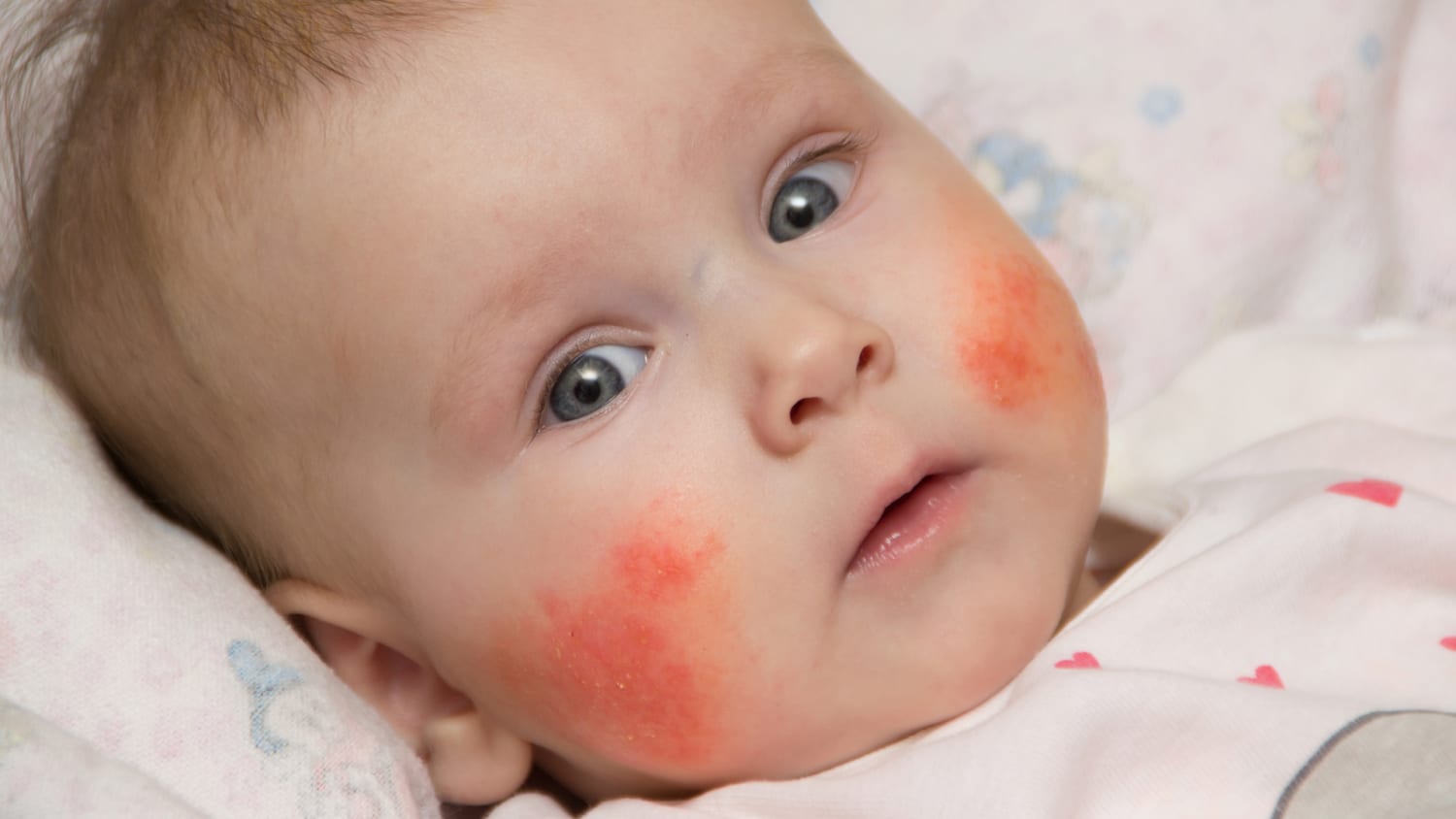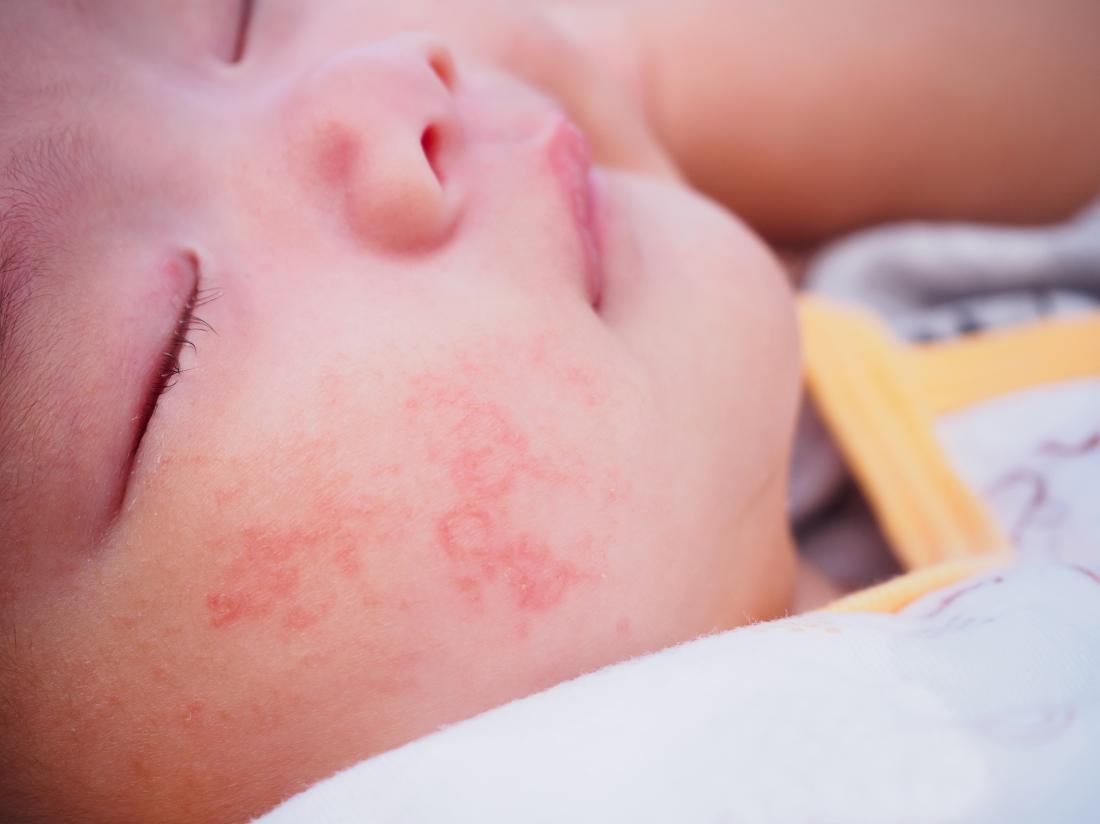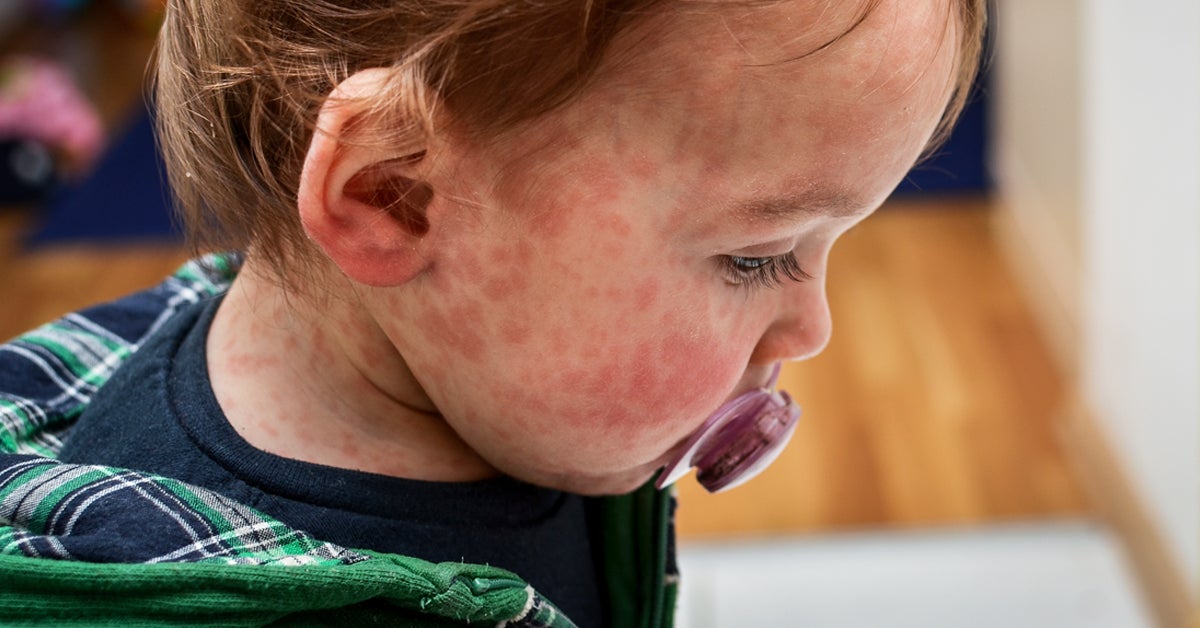Mild or moderate allergic reactions can happen after your baby touches swallows tastes eats or breathes in something theyre allergic to. Get medical advice if you think your child is having an allergic reaction to a particular food.

Does My Baby Have A Food Allergy Motherhood Network
Sometimes they can show up as quickly as a few minutes after your baby starts eating a certain food.

How do you know if baby has allergic reaction to food. A baby can develop hives as the result of a food allergy. According to the American Academy of Allergy Asthma Immunology about 6 percent of children aged 2. Fussiness can be a symptom of any condition that makes a baby uncomfortable including the mild to moderate food.
Other signs of a mild to moderate food allergy reaction include. For eczema babies. Check for symptoms after eating.
If a baby is crankier than normal after a new food keep a close eye on it. An allergic reaction usually occurs soon after you or your child consumes milk. However if the baby is sleeping well and still getting puffy and swollen eyes it can be a case of allergic reaction to formula food or to other kinds of allergy triggers.
Its important to let all your childs caregivers know about his allergies how to tell if he is having an allergic reaction and what to do if he is exposed to an offending food. Always keep safe food on hand especially when youre out and become an expert at reading food labels milk eggs and other allergenic foods are often listed by other names. Sometimes the body makes an antibody called IgE a protein that can detect the food.
Most common symptoms - In babies and young children hives red raised bumps and vomiting are the most common symptoms of a food allergic reaction. When kids are allergic to a food their body treats the food like an invader and launches an immune-system attack. Learn how to tell the difference between a food allergy reaction and eczema here.
Tingling or itching in the mouth Hives itching or eczema Swelling of the lips face tongue and throat or other parts of the body. Sore red and itchy eyes. We get very concerned with trouble breathing or a change in a childs voice those can indicate more serious reactions.
Symptoms of an allergic reaction may involve the skin the digestive system the cardiovascular system andor the respiratory tract and can vary from person to person and from incident to incident. Swelling of the face lips and eyes. In the pediatric age group the most common allergies are to milk and eggs.
Allergic reactions usually occur quickly within minutes to two hours while other reactions to. Signs and symptoms of milk allergy range from mild to severe and can include wheezing vomiting hives and digestive problems. Occasionally foods can cause a severe allergic reaction anaphylaxis that can be life-threatening.
Its very very rare but potentially a food allergy reaction could be fatal. If your child eats the food again the antibody tells your childs immune system to release substances such as histamine to fight the invader. How to tell if your child has a food allergy.
Swollen lips and throat. Wheezing and shortness of breath. Eight foods account for 90 percent of all food allergies and one risk factor is having a parent or sibling with an allergy.
Learn more about the difference between a food allergic reaction and an eczema. A potentially fatal reaction to a serious food or medicine. Call an ambulance immediately if there are signs of a severe allergic reaction anaphylaxis such as difficultnoisy breathing or your baby becomes pale and floppy or if there is tongue swelling.
If you believe your baby has an allergic reaction to a food such as diarrhea rash or vomiting talk with your. In some cases your babys lips or tongue may start to swell. The most common food allergy signs and symptoms include.
Itchy skin or rash. Hives from a food allergy reaction are different from the red scaly rash that eczema causes. If your baby is severely allergic symptoms usually develop right away.
Signs of an allergic reaction include. Below is one example of what hives may look like on a baby. There is no evidence that waiting until the baby is older prevents food allergy.
Itchy throat and tongue. Introducing allergenic foods including peanuts one at a time to your baby between 4 and 6 months may reduce the risk of developing a food allergy. How do you know if your child has a food allergy.
Hives from a food allergic reaction are different from the red itchy rash that eczema causes. Tingling or itchiness of the. Symptoms of food allergies generally appear within an hour of eating.
Milk allergy can also cause anaphylaxis a severe life-threatening reaction. Food allergies can also result in nausea vomiting or abdominal pain. Runny or blocked nose.

Allergic Reaction In Baby Treatment And Pictures

What To Do If My Baby Has An Allergic Reaction Readysetfood Ready Set Food

How To Recognize Food Allergies In Babies Allergy Symptoms And Treatment Youtube

Food Allergies In Babies Who Breastfeed Common Signs And Solutions

Baby Allergic Reaction To Food Signs And Symptoms

Symptoms Of Allergic Reactions In Babies Solid Starts

100 Food Allergies In Babies Ideas In 2021 Food Allergies Allergies Baby Food Allergies

How To Know If Your Child Might Be At Risk For Food Allergy

What Are Signs Of Food Allergies In Babies Consultant In Paediatric Respiratory Medicine